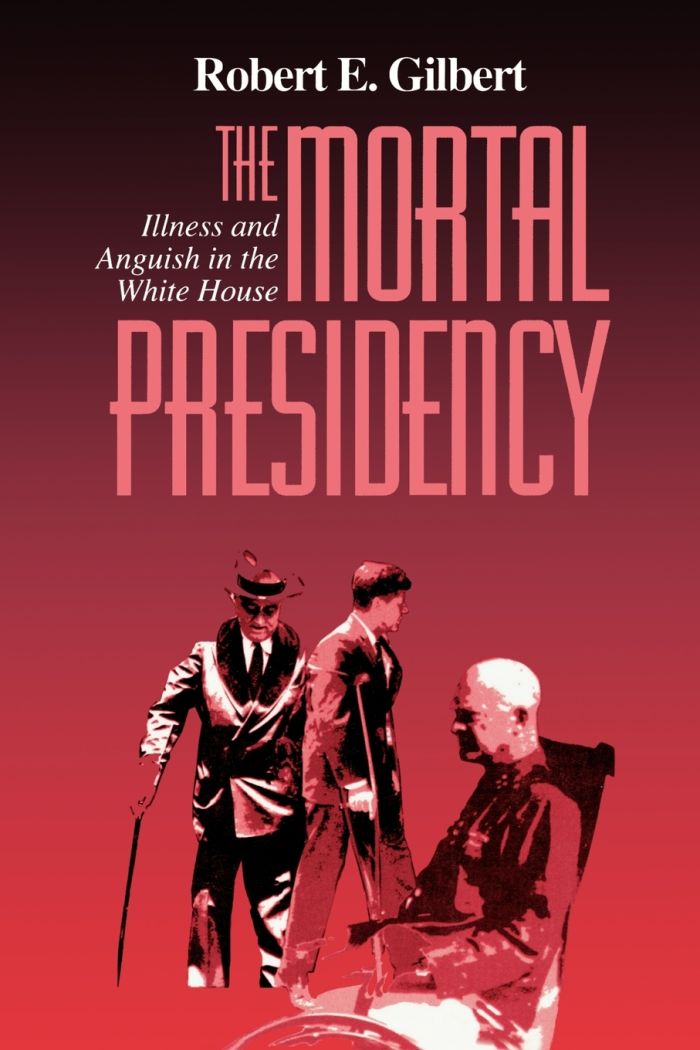The Mortal Presidency
Illness and Anguish in the White House

This book can be opened with

Available in a new digital edition with reflowable text suitable for e-readers
The presidency is hazardous to your health. Fully two-thirds of our presidents have died before reaching their life-expectancy- despite being wealthier, better educated, and better cared for that most Americans. In Mortal Presidency, the first complete account of death and illness in the White House, Robert E. Gilbert looks at modern presidents including Coolidge, FDR, Eisenhower, Kennedy, and Reagan. He shows- in some cases, for the first time- that all suffered from debilitating medical problems, physical and/or psychological, which they frequently managed to conceal from the public but which, in important ways, affected their political lives. This edition is updated to include a brief look at Presidents Clinton and Bush, both of whom suffered sudden and unpleasant indispositions while in office which to some degree affected their presidencies.
Gilbert’s groundbreaking study examines how stress and the potential for psychological illness make the modern presidency a dangerously unhealthy office. . . . Gilbert’s strength lies in his excellent medical and psychological profiles. Strongly recommended.—Library Journal
Gilbert (Northeastern Univ.) has fashioned a gem of a book. Permeating the case studies that examine the sources and effects of maladies suffered by six 20th-century US presidents is an acute awareness of the interplay between body, mind, and politics. Postwar presidents generally have exhibited a compulsive drive to do their duty and a penchant for denying the effects of work. The office thus takes a heavy toll on its occupants, with profound implications for the polity and country. The Twenty-Fifth Amendment, ratified in 1967, has been invoked only once, voluntarily by Reagan for his brief 1986 cancer surgery, although it should have been involuntarily invoked during his surgery following the 1981 assassination attempt, for it was designed for just such scenarios. Gilbert rightly concludes that the Twenty-Fifth Amendment is "the best constitutional remedy at hand, and tinkering with it would be unwise." Precisely because cabinet members are politically beholden to the president, that body, acting in tandem with the inherently deferential vice president, is the appropriate mechanism to make judgments about presidential incapacity. Gilbert suggests three practical steps to help presidents cope with the stresses that make them susceptible to disease and early death. Two recommendations, downsizing the White House Office and utilizing a strong chief of staff, are familiar and solid. A third proposal, the unobtrusive establishment of a mental health unit in the White House medical office, is innovative and sound. Highly recommended for undergraduates and above.—Choice

